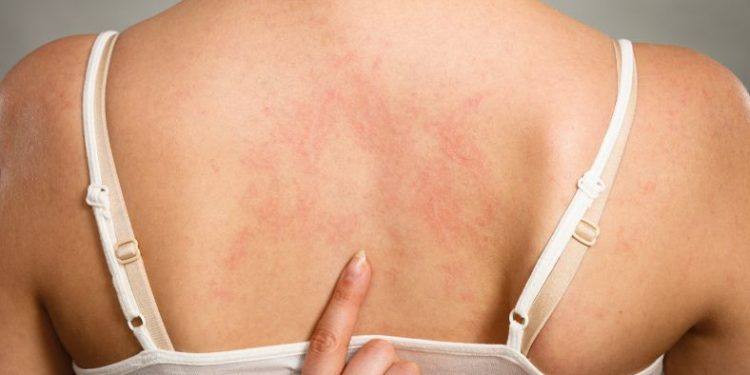Typically, urticaria is caused by an allergic reaction to a substance that triggers the release of chemicals under the skin’s surface. It can affect the face, neck, toes, fingers, and sometimes men’s genitals. Urticaria symptoms are usually mild and resolve on their own, but if symptoms persist, see a doctor for treatment.
Symptoms of urticaria are usually characterized by itching, burning, and swelling. Urticaria can also result in a fever, wheezing, or difficulty breathing. In severe cases, steroid injections may be required. The doctor will ask about medications you may have taken recently, as well as your diet, to determine if you have an allergy to something. A blood test can also be used to detect an allergy.
There are two main types of urticaria: acute and chronic. Acute urticaria symptoms usually last less than six weeks. Chronic urticaria symptoms can last for months or years. Chronic urticaria symptoms are often hard to treat and can cause discomfort, especially when sleeping. Some forms of urticaria may be triggered by an autoimmune disease. Some other forms are caused by a viral or bacterial infection. The best way to treat chronic urticaria is to determine the cause and eliminate any triggers.
Acute urticaria symptoms can be treated with antihistamines. These medications are available over the counter at pharmacies. If urticaria symptoms persist, your doctor may prescribe a short course of oral corticosteroid pills or an injection. A doctor may also prescribe a prescription drug called epinephrine. If symptoms do not respond to treatment, your doctor may recommend you see a skin specialist.

Angioedema (swelling) is a type of urticaria that may affect any area of the body. When it occurs, you will experience swelling that may cause difficulty breathing, low blood pressure, and even fainting. If the swelling is severe, it may require steroid injections. Angioedema typically clears up in 24 hours.
Angioedema may be caused by a number of conditions. It can be caused by allergies, infection, or an allergic reaction to medications, or it can be a symptom of an autoimmune disease. In rare cases, it can be caused by cancer. A skin specialist can evaluate your urticaria symptoms and determine the cause. If urticaria is due to an autoimmune disease, your doctor may recommend a steroid injection or another type of treatment.
If you are concerned about urticaria symptoms, you may want to keep a food diary to find out what foods are triggers for you. A dietitian can also assist you in creating a diet that is healthy. Using relaxation techniques and reducing stress may also help. The skin specialist may also recommend phototherapy to prepare your skin for sun exposure. However, phototherapy may not be long-lasting.
If you are concerned about urticaria, see your doctor or an allergist. Your doctor may order blood tests and a skin test to determine whether you have an allergy to something. If your doctor determines that you have an allergy, you may be prescribed an antihistamine. If your doctor determines that you do not have an allergy, you may need to see an allergist or a skin specialist to treat your urticaria.









